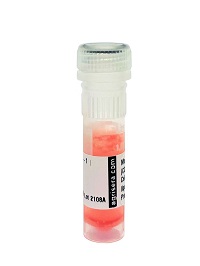1

Anti-Non-fucosylated xyloglucan-3 (clone CCRC-M100)
AS16 3234-1ml | Clonality: monoclonal | Host: Mouse | Reactivity: Acer pseudoplatanus, Arabidopsis thaliana, Solanum lycopersicum, Tamarindus indicus
From the laboratory of Michael G. Hahn, PhD, University of Georgia
- Product Info
-
Immunogen: BSA-conjugated sycamore ((Acer pseudoplatanus)) xyloglucan, covalent binding. Sub class: IgM Host: Mouse Clonality: Monoclonal Purity: Cell culture supernatant. Format: Liquid Quantity: 1 ml Storage: Antibody can be stored up to 1 month at 4°C, and at -80°C for up to 1 year. Make aliquots to avoid repeated freeze-thaw cycles. Please remember to spin the tubes briefly prior to opening them to avoid any losses that might occur from material adhering to the cap or sides of the tube. Tested applications: ELISA (ELISA), Immunohistochemistry (IHC), Immunofluorescence (IF) Recommended dilution: Undiluted or at 1 : 10 (ELISA), (IF), (IHC) - Reactivity
-
Confirmed reactivity: Acer pseudoplatanus, Arabidopsis thaliana, Solanum lycopersicum, Tamarindus indicus Predicted reactivity: Dicots
Species of your interest not listed? Contact usNot reactive in: No confirmed exceptions from predicted reactivity are currently known - Additional Information
-
Additional information: Exact working dilution needs to be determined by end user Additional information (application): CCRC-M100 binds only to the xyloglucan sub-unit, XXXG, and shows no cross-reactivity with other xyloglucan sub-units tested, CCRC-M100 shows some cross-reactivity with sycamore pectic polysaccharides and linseed mucilage - Background
-
Background: Xyloglucans are polysaccharides commonly refered to as hemicelluloses found in the primary cell walls of vascular plants. This antibody binds to galactosylated side-chains of non-fucosylated xyloglucan-3, and appears to preferentially bind to the galactosylated side-chain closest to the reducing end of xyloglucan oligosaccharide sub-units (XXXG). - Product Citations
-
Selected references: Pattathil et al. (2012). Immunological approaches to plant cell wall and biomass characterization: Glycome Profiling. Methods Mol Biol. 2012;908:61-72.doi: 0.1007/978-1-61779-956-3_6. - Reviews:
-
This product doesn't have any reviews.
